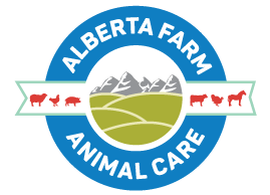By Kendra Juurlink, B.Sc. (Agr), Alberta Farm Animal Care
A recent Canadian study examined the impact of providing group-housed sows with enrichment on their welfare. Sow welfare can be measured by observing animal behaviour and the animal’s appearance (e.g., skin lesions).
Swine producers aim to reduce or eliminate aggression and the occurrence of skin lesions in their animals. Sows are known to be aggressive toward their pen mates if they are bored in their environment. Therefore, researchers wanted to examine the benefit of offering different enrichment treatments to the group pen.
The study compared four treatments. The first treatment was constantly offering the sows wood on a chain hanging in the pen. The second treatment was rotated offering three enrichments options (rope, straw, and wood on a chain). The third treatment rotated through the three enrichment options but associated offering the enrichment with a stimulus (e.g., a bell or whistle). The fourth treatment was a control where no enrichment was offered.
The study’s results indicated that sows were more interested in the rotate and stimulus treatments than the constant treatment. Researchers found that there was a “significant reduction in pen mate biting behaviour and wounds compared to presentation of a chain enrichment only.” The researchers discovered that there was greater interest with enrichments on the first day they were offered and decreased over time. It was suggested that rotating enrichments maintained their novelty to the sows.
The researchers concluded that social hierarchy and dominance was a crucial component of sows interacting with the enrichments. This is important research for swine producers to ensure the health and welfare of their animals which will have economic benefits as well.
